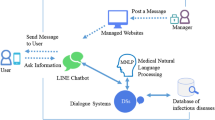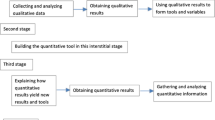Abstract
This paper examines messages posted in a hacker forum and constructs four user profiles based on the observed behavior patterns. It starts with the development of an automated forum post classification system to understand the knowledge transfer pattern exhibited by each user over time. Two patterns, knowledge acquisition and knowledge provision, are noted to be particularly informative. Based on these two and other user characteristics, user profiles are classified into four types: guru hackers, casual hackers, learning hackers, and novice hackers. Guru hackers are knowledgeable and respectable. They usually share ideas and advice with others. Casual hackers tend to act as observers. They can be skilled hackers who show interest mainly in deriving usable information from the forum. Learning hackers are also expert hackers who utilize the forum basically for learning. They actively seek knowledge and tend to share more of it over time. Novice hackers are new learners who typically join the forum for a short period. Overall, it is found that hacker communities very much represent learning communities where meritocracy is in place.



Similar content being viewed by others
References
Abbasi, A., et al. (2010). Detecting fake websites: the contribution of statistical learning theory. MIS Quarterly, 34(3), 1–28.
Abuhamdieh, A. (2006). Knowledge transfer in virtual communities. Review of Business Information Systems, 10(4), 23–36.
Albanesius, C. (2011). Cyber crime costs $114B per year, mobile attacks on the rise. Retrieved August 2013, from http://www.pcmag.com/article2/0,2817,2392570,00.asp.
Barber, R. (2001). Hackers profiled – who are they and what are their motivations. Computer Fraud & Security, 2001(2), 14–17.
Bock, G.-W., Zmud, R. W., Kim, Y.-G., & Lee, J.-N. (2005). Behavioral intention formation in knowledge sharing: examining the roles of extrinsic motivators, social-psychological forces, and organizational climate. MIS Quarterly, 29(1), 87–111.
Bratus, S. (2007a). Hacker curriculum: how hackers learn networking. IEEE Distributed Systems Online, 8(10), 2.
Bratus, S. (2007b). What hackers learn that the rest of us don’t. IEEE Security and Piracy, 5(4), 72–75.
Cavusoglu, H., Raghunathan, S., & Yue, W. T. (2008). Decision-theoretic and game theoretic approaches to IT security investment. Journal of Management Information Systems, 25(2), 281–304.
Chantler, N. (1997). Profile of a computer hacker. Seminole: Inter. Pact Press.
Cortes, C., & Vapnik, V. (1995). Support - vector networks. Machine Learning, 20(3), 273–297.
Desanctis, G., Fayard, A.-L., Roach, M., & Jiang, L. (2003). Learning in online forums. European Management Journal, 21(5), 565–577.
Georgolios, P., Kafentzis, K., & Mentzas, G. (2007). Knowledge provision with intelligent E-services. International Journal of Intelligent Systems, 22(5), 501–518.
Hall, H., & Graham, D. (2004). Creation and recreation: motivating collaboration to generate knowledge capital in online communities. International Journal of Information Management, 24(3), 235–246.
Heinzen, T. E., & Picciano, L. M. (2009). Ilk hunting: Newbies, cyberpunks, coders and the search for elusive, ego-twisted, talented computer hackers. In L. V. Shavinina (Ed.), International handbook on giftedness (pp. 809–823). Netherlands: Springer.
Hollinger, R. C. (1988). Computer hackers follow a guttman-like progression. Social Sciences Review, 72(3), 199–200.
Holt, T. J. (2007). Subcultural evolution? Examining the influence of on- and off-line experiences on deviant subcultures. Deviant Behavior, 28(2), 171–198.
Holt, T. J. (2010). Exploring strategies for qualitative criminological and criminal justice inquiry using on-line data. Journal of Criminal Justice Education, 21(4), 466–487.
Holt, T. J., & Bossler, A. M. (2008). Examining the applicability of lifestyle-routine activities theory for cybercrime victimization. Deviant Behavior, 30(1), 1–25.
Holt, T. J. & Kilger, M. (2008). Techcrafters and makecrafters: A comparison of two populations of hackers. Paper presented at WOMBAT Workshop on Information Security Threats Data Collect and Sharing (WISTDCS2008), Amsterdam, Netherlands.
Holt, T. J., Strumsky, D., Smirnova, O., & Kilger, M. (2012). Examining the social networks of malware writers and hackers. International Journal of Cyber Criminology, 6(1), 891–903.
Joachims, T. (2002). Learning to classify text using support vector machines-methods, theory and algorithms, The Springer International Series in Engineering and Computer Science. Springer.
Jordan, T., & Taylor, P. (1998). A sociology of hackers. The Sociological Review, 46(4), 757–780.
Landreth, B. (1985). Out of the inner circile: A hacker’s guide to computer security. Redmond: Microsoft Books.
Liu, X. et al. (2012). Harnessing global expertise: a comparative study of expertise profiling methods for online communities. Information Systems Frontiers, 1–13. doi:10.1007/s10796-012-9385-6.
Ma, M., & Agarwal, R. (2007). Through a glass darkly: information technology design, identity verification, and knowledge contribution in online communities. Information Systems Research, 18(1), 42–67.
Minshall, T. (2009). What is knowledge transfer?. Retrieved February 2014, from:http://www.cam.ac.uk/research/news/what-is-knowledge-transfer.
Olson, P. (2012). We are anonymous: Inside the hacker world of LulzSec, anonymous, and the global cyber insurgency. New York: Back Bay Books.
Phang, C. W., Kankanhalli, A., & Sabherwal, R. (2009). Usability and sociability in online communities: a comparative study of knowledge seeking and contribution. Journal of the Association for Information Systems, 10(10), 721–747.
Pipkin, D. L. (2003). Halting the hacker: A practical guide to computer security (2nd ed.). Upper Saddle River: Prentice Hall Professional.
Porter, M. F. (1980). An algorithm for suffix stripping. Readings in information retrieval (pp. 313–316).
PricewaterhouseCoopers (2014). The Global State of Information Security Survey 2014, Retrieved March 2014, from: www.pwc.com.
Rogers, M. K. (2006). A two-dimensional circumplex approach to the development of a hacker taxonomy. Digital Investigation, 3(2), 97–102.
Sarma, M. & Lam, A. (2013). Knowledge creation and innovation in the virtual community? Exploring structure, values and identity in hacker groups. Paper presented at 35th DRUID Celebration Conference 2013, Barcelona, Spain.
Shih, H.-P. & Huang, E. (2012). Influences of Web interactivity and social identity and bonds on the quality of online discussion in a virtual community. Information Systems Frontiers, 1–15. doi:10.1007/s10796-012-9376-7.
Smith, A. D., & Rupp, W. T. (2002). Issues in cybersecurity: understanding the potential risks associated with hackers/crackers. Information Management & Computer Security, 10(4), 178–183.
Wasko, M. M., & Faraj, S. (2005). Why should I share? Examining social capital and knowledge contribution in electronic networks of practice. MIS Quarterly, 29(1), 35–57.
Whitman, M. E., & Mattord, H. J. (2012). Principles of information security (4th ed.). Boston: Course Technology Cengage Learning.
Acknowledgments
The work described in this paper was partial supported by a grant from the Research Grants Council of the Hong Kong Special Administrative Region, China (Project No. CityU 152611)
Author information
Authors and Affiliations
Corresponding authors
Rights and permissions
About this article
Cite this article
Zhang, X., Tsang, A., Yue, W.T. et al. The classification of hackers by knowledge exchange behaviors. Inf Syst Front 17, 1239–1251 (2015). https://doi.org/10.1007/s10796-015-9567-0
Published:
Issue Date:
DOI: https://doi.org/10.1007/s10796-015-9567-0




